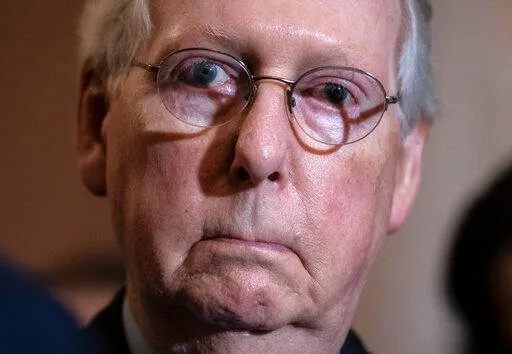This is the week of Jan. 6, so we’re hearing a lot about democracy.
In Kentucky, it ramped up Tuesday, when the legislature convened and began redistricting, the process by which politicians choose their voters and the majority party sticks it to the minority. Also, Republicans, who hold 75 of the 100 House seats, passed a rule allowing 60 members to immediately stop debate and repealed the oft-waived rule requiring advance notice of committee discussion of bills. Among the Democrats objecting was Rep. Susan Westrom of Lexington, who said “In 24 years I have never seen such an attack on democracy.”
Westrom apparently forgot what happened a year ago in Washington, when certification of the presidential election was interrupted by an assault on the Capitol, inspired by the lie that the election was stolen. That was an attack on democracy, inspired by a president who violated his oath to “preserve, protect, and defend the Constitution of the United States” and waited hours before grudgingly calling it off.
Just before the attack began, Senate Republican Leader Mitch McConnell, hoping to read Donald Trump out of the party, said of Trump’s lies: “Over and over, the courts rejected these claims — including all-star judges whom the president himself nominated. Every election features some illegality and irregularity and it’s unacceptable. I support strong state-led voting reforms. Last year’s bizarre pandemic procedures must not become the new norm. But nothing before us proves illegality anywhere near the massive scale that would have tipped this entire election. Nor can public doubt alone justify a radical break when that doubt was incited without evidence.”
A week later, the House impeached Trump for “incitement of insurrection,” and six days later, McConnell essentially endorsed the impeachment, saying: “The mob was fed lies. They were provoked by the president and other powerful people.” But McConnell had declined to convene the Senate for a quick trial before Trump’s term ended, and that provided grounds for his later vote to acquit, that he didn’t believe an ex-president was subject to conviction (and, by extension, a separate vote to disqualify him from office). The Leader apparently saw that his party didn’t want either thing to happen.
But when the trial ended, McConnell did make clear what happened Jan. 6: “American citizens attacked their own government. They used terrorism to try to stop a specific piece of democratic business they did not like. Fellow Americans beat and bloodied our own police. They stormed the Senate floor. They tried to hunt down the speaker of the House. They built a gallows and chanted about murdering the vice president. They did this because they had been fed wild falsehoods by the most powerful man on earth – because he was angry he’d lost an election. Former President Trump’s actions preceding the riot were a disgraceful dereliction of duty. . . . There is no question that President Trump is practically and morally responsible for provoking the events of that day.”
Since then, McConnell has been silent about Jan. 6, probably because 70 to 75 percent of Republicans tell pollsters that the election was stolen. And in many states, Republicans are responding to that by passing laws making it more difficult to vote. That has prompted dire warnings from Democrats that our democracy is in danger, but as conservative columnist David Brooks has noted, research shows that such measures have little effect on voter turnout.
The Democrats need to focus their criticism and their legislation on a much more dangerous phenomenon – laws that allow state legislatures to remove election officials and overturn their certifications. Sadly, McConnell hasn’t made that an exception to his blanket opposition to election reform, saying Tuesday, “Why would any legislature in America want to overturn the counting of votes? They have to get elected by those people, too.”
Senator, if those people believe Trump’s big lie about 2020, they are likely to believe those he could tell in 2024. Your question could be answered this way: They’d do it for partisan advantage, a strategy that’s been the hallmark of your political career.
McConnell should remember something else he said last Jan. 6: “Self-government requires a shared commitment to truth and shared respect for the ground rules of our system. We cannot keep drifting apart into two separate tribes; with separate facts, and separate realities; with nothing in common except hostility toward each another and mistrust for the few national institutions that we still share.”
Some Republican election-law changes in other states disrespect “the ground rules of our system,” which include independent, bipartisan control of elections. The Senate needs to find a narrow but firm way to correct that, or our democracy may really find itself in danger. That is a scenario in which partisan advantage should have no meaning or influence.
--30--
Cross-posted from the Northern Kentucky Tribune.








